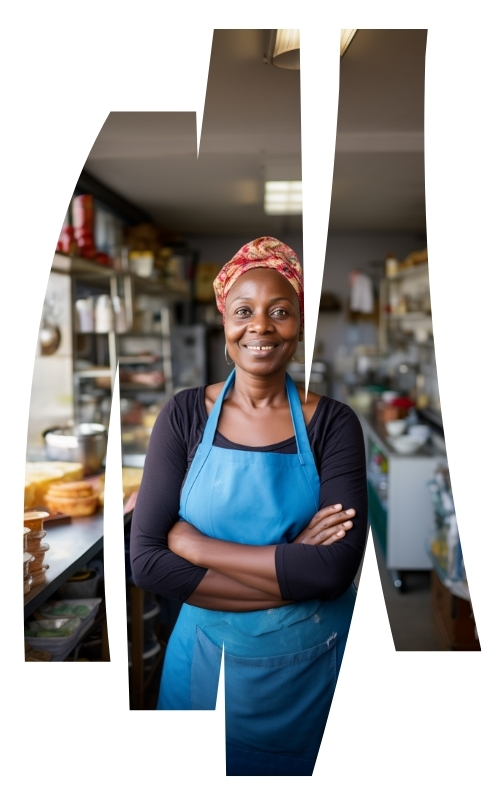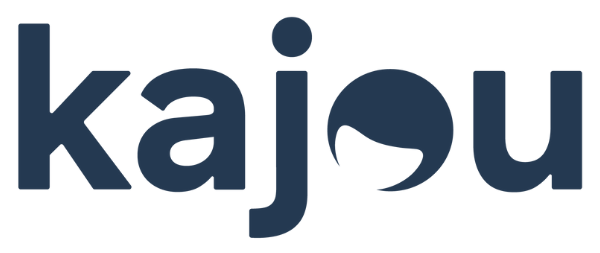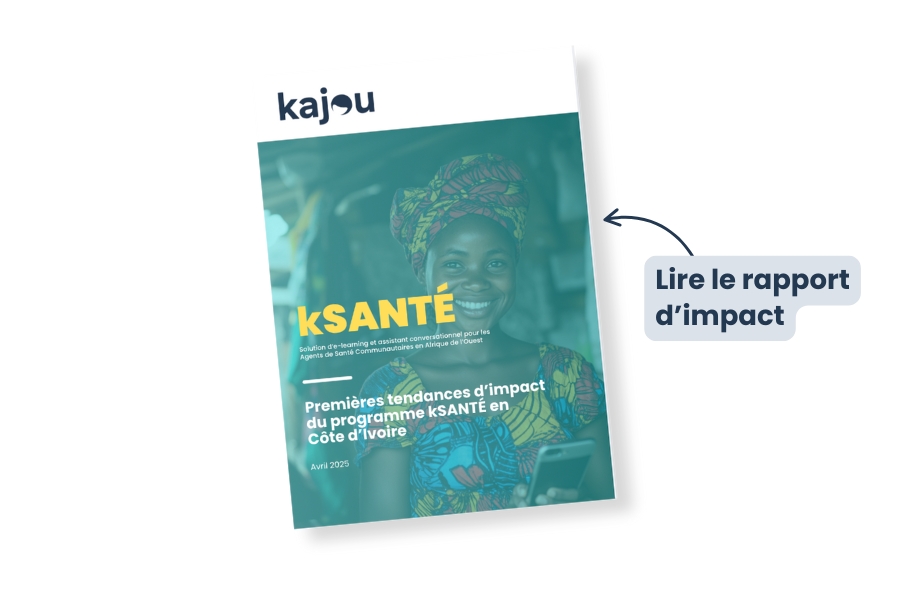Discover our flagship programs:
kHEALTH
Training solution for Community Health Workers in West Africa
In West Africa, Community Health Workers (CHWs) play a key role in providing access to healthcare for the most remote populations. Yet, their ongoing training remains insufficient, hampered by logistical challenges, a lack of coordination, and a lack of accessible educational tools.
The kSANTÉ project aims to address these challenges by offering an innovative and scalable solution: a mobile self-training platform accessible offline, combined with an AI Assistant , allowing ASCs to obtain immediate and contextualized answers to their medical questions.
> An innovative solution for ASC training
In total, kSANTÉ offers 19 training modules created under the supervision of a scientific committee and focusing on disease awareness, diagnosis, care, and patient relations. Each module consists of a masterclass, exercises, and dozens of additional resources.
kSANTÉ circumvents traditional connectivity issues thanks to Kajou technology: the solution is natively offline, meaning it is primarily designed for users with little or no internet access. It is available on a Kajou memory card that inserts into the smartphone's microSD port and provides access to all training content and the AI assistant. When the phone connects to an internet network, kSanté automatically updates and transmits tracking and analytics information.
Even without an internet connection, ASCs receive notifications generated by the Kajou app, which helps increase their engagement and course completion.
The solution is also accessible online for users connected to the internet.
> Very interesting first results
kSANTÉ is deployed to 5,000 health workers in Côte d'Ivoire and is being implemented for 2,000 workers in Senegal.
The first results of the deployment of the solution in Ivory Coast show a strong enthusiasm among ASCs for the kSANTÉ solution and a direct effect on their skills with a 10% increase in knowledge after 4 months of using the solution .
We are convinced that the kSANTÉ solution has game-changing potential for community health training in West Africa. It is rapidly scalable in a very cost-effective manner (frugal, offline, digital).
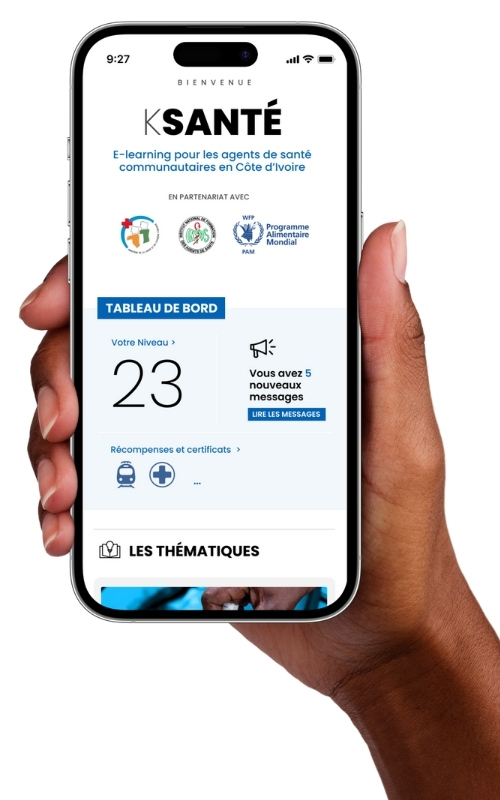
African Urban Music Campus
Training platform for cultural and creative industries
West African youth suffer from a lack of educational and professional opportunities. 91% of Senegalese have never received any vocational training.
Faced with these challenges, many young people seek to emancipate themselves by expressing their creativity. Through art and music, they aspire to overcome obstacles, creating opportunities where none exist.
Kajou and Daara J Family have teamed up to create the African Urban Music campus, a free digital training program with no diploma requirements, to support young people in their quest for emancipation through music and creativity.
Since the launch in December 2024, 1,500 young people have already been trained in urban music and the Cultural and Creative Industries , a real driving force for development and emancipation.
Participants have access to free training on artistic aspects (production, lyrics, beatmaking, etc.) but also on key music professions from talent management to communication and visual identity.
AUMC is more than a training program: it's a platform for learning, creating, and growing. True to its mission of democratizing access to knowledge and culture, Kajou is committed to unlocking the immense potential of young Africans and making every talent a beacon of light to illuminate the continent's future.
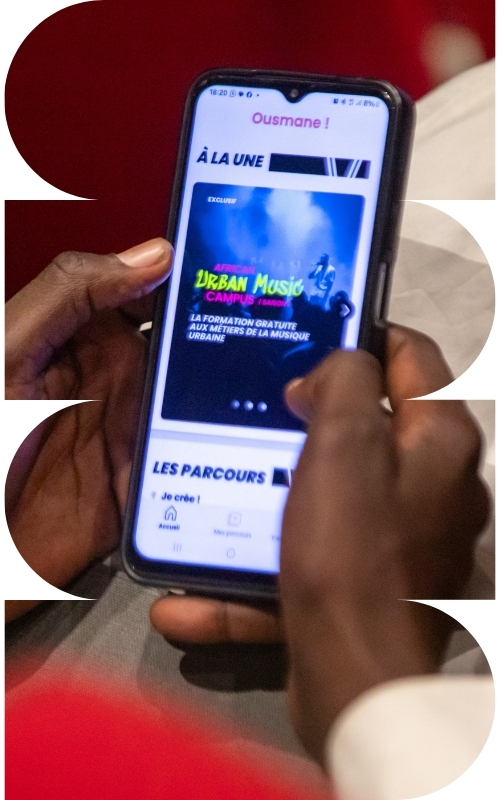
Tutobac, formal education and support for teachers
With less than 40% of students passing the baccalaureate exam, preparing for the exam is a crucial issue for Senegalese high school students . Families invest a lot of hope and financial resources in passing the exam, and many candidates cannot afford to repeat the year if they fail.
Revision books are expensive, and digital resources are often of uneven quality. Additionally, internet connections are a drain on a high school student's budget. And when the internet connection is down, there's no way to study.
Kajou and the NGO Libraries Without Borders joined forces two years ago to create a digital baccalaureate review tool. It takes the form of a microSD card that fits into the student's phone and offers hundreds of videos and PDFs of lessons and reviews of the Senegalese curriculum, accessible without consuming any internet data.
Already, 3,000 high school seniors have received a card and have been able to revise at their leisure. The impact on baccalaureate results is significant, with 40% more students achieving an average baccalaureate grade thanks to Kajou.
Kajou continues this effort today in two ways:
- By launching Tutobac , the first Senegalese baccalaureate coaching program consisting of revision assistance videos and an AI assistant that answers students' questions (available end of 2025)
- By developing an AI assistant for primary school teachers to help them prepare their lessons and create activities with a high educational impact for their students.

Higher education and vocational training
The massification of higher education and vocational training requires increasingly rich digital platforms. But real access to this content remains uneven: internet connections are often unstable, costly or even non-existent for thousands of learners. Kajou makes these training platforms accessible everywhere, without a connection. In collaboration with universities and ministries, we "offline" complete programs - courses, exercises, videos - and distribute them via Kajou SD cards, enabling students and learners to continue their learning without depending on a network.
Thanks to our technology, higher education and training establishments can drastically reduce their bandwidth costs while guaranteeing equitable access to knowledge. Kajou cards are regularly updated remotely to keep pace with curricula, and can be enriched with complementary digital libraries. Our approach not only supports pedagogical continuity, but also empowers learners, wherever they are.
The number to remember :
In one academic year, the 6,500 students at the Université d'Etat d'Haïti equipped with Kajou cards with the first-year MOOCs loaded on them viewed offline the data equivalent of 236TB, saving the university€350,000 in Internet data purchases!
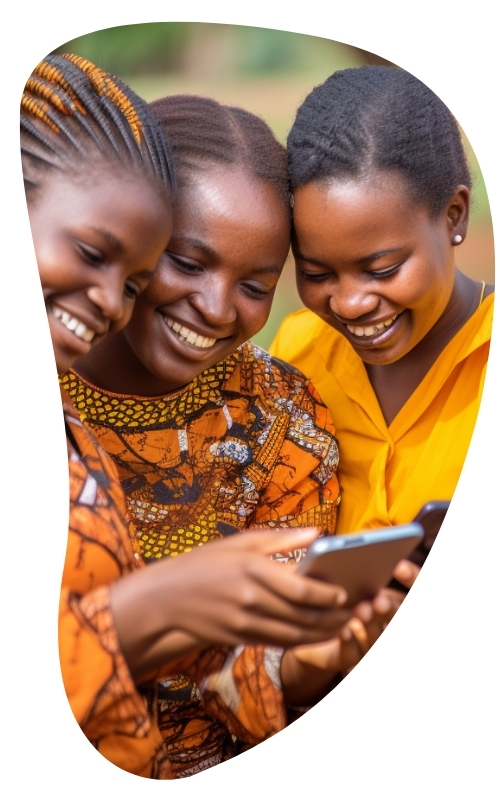
Financial education and entrepreneurship
Access to microcredit and training remains a challenge for many women entrepreneurs in rural areas. Kajou designs training modules in local languages on financial management and entrepreneurship. These courses cover the key concepts needed to run an income-generating business: budget management, pricing, savings, sales, leadership and preventing over-indebtedness. Accessible without a connection, this program promotes the autonomy and economic inclusion of women who are farthest from training centers.
Kajou also supports skills development in specific trades such as crafts and agriculture.

Girls' health and empowerment
Access to reliable, contextualized information on sexual and reproductive health remains an essential lever for the emancipation of young girls in sub-Saharan Africa. Kajou has developed a wide range of content for girls and women, available free of charge on our app or as part of dedicated programs.
For example, with the SWEDD program, initiated by the World Bank and the United Nations, Kajou has digitized a training course for mentors accompanying teenage girls. A total of 20 modules - in the form of masterclasses, interactive exercises and complementary resources - have been designed to address the themes of health, self-confidence, rights and entrepreneurship.
By removing the technological and linguistic barriers to accessing resources, Kajou helps make information and training truly inclusive, and empowers girls to take action about their health, their future and their place in society.
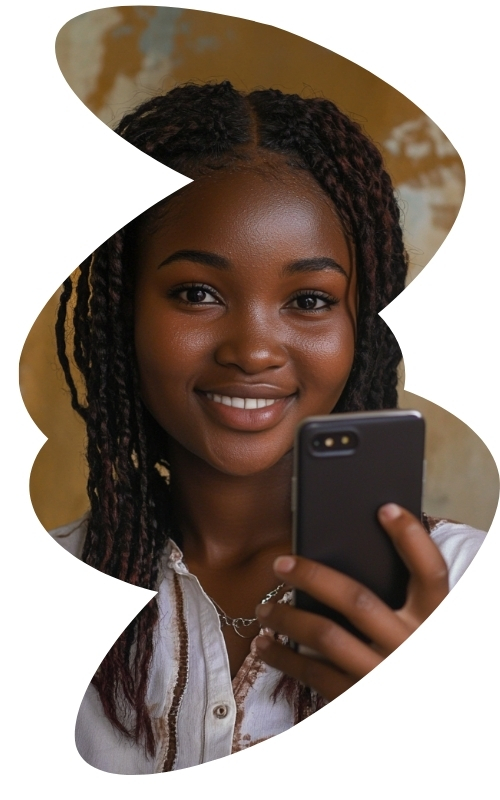
Learning French
In partnership with Bibliohtèques Sans Frontières, Kajou is developing Karibu, a free, fun mobile application designed to facilitate learning French in the context of migration or resettlement. Based on Kajou's offline technology, it offers over 50 interactive modules combining audio dialogues, grammar lessons, practical exercises and useful resources. Each module deals with everyday situations - finding a job, healthcare, housing, enrolling children in school - to enable learners to rapidly gain autonomy.
Karibu adapts to the user's native language to encourage a gradual introduction to French. Already available in Ukrainian, Arabic, Pashto and English, it will soon be available in Swahili and Kirundi, and will incorporate an AI model for real-time feedback to learners.
Entirely usable without an Internet connection, Karibu has already enabled more than 20,000 people to learn French, particularly in crisis or humanitarian contexts.
